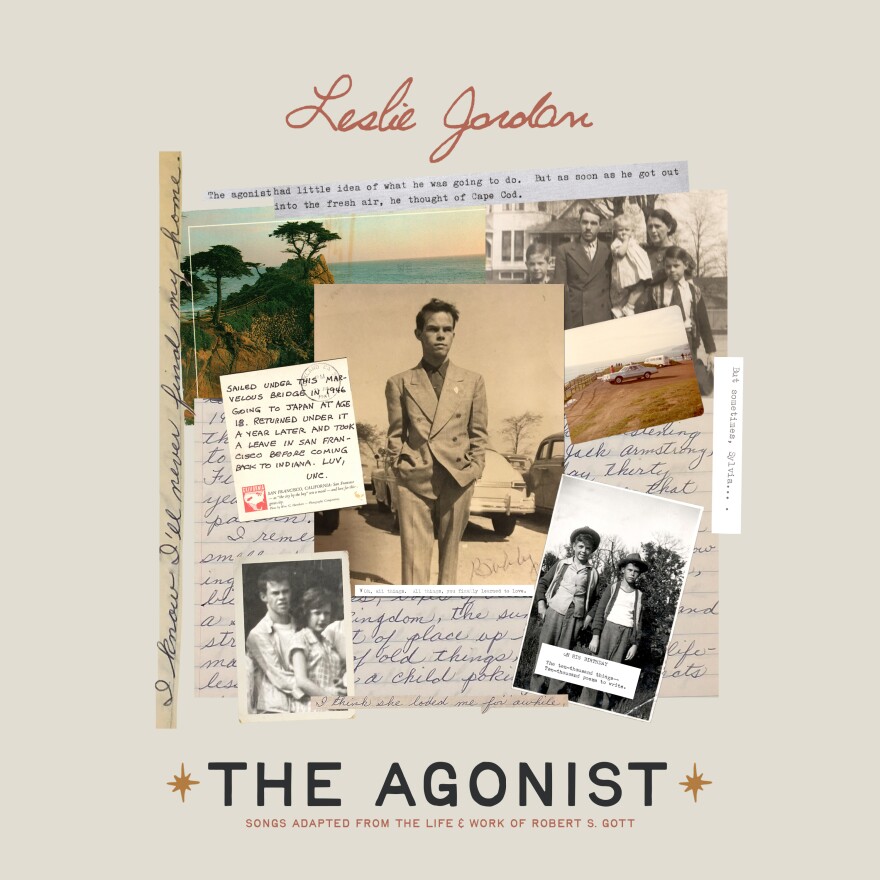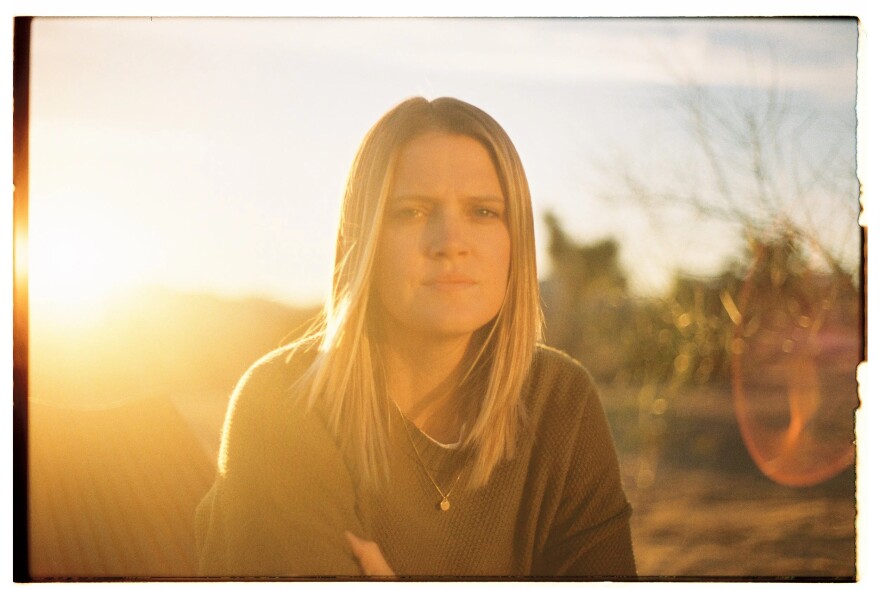Concept albums can be rewarding, but they’re high risk. If the story doesn’t set its hook quickly, and if there’s not enough development or variety, they can leave us wondering what was the point? But when concept albums work, they can become classics that invite and even demand multiple uninterrupted listening experiences. The best of them, such as Marty Stuart’s The Pilgrim, Southern Rock Opera by Drive By Truckers and Sturgill Simpson’s Metamodern Sounds In Country Music, build a world and unfold with cinematic grandeur.
Time will tell whether The Agonist, the new album from Nashville songwriter Leslie Jordan, finds a place in the pantheon of beloved concept albums, but I find it riveting and beautiful and certainly one of my favorite roots music albums of this year. That’s why I wanted to have Leslie on. She’s a veteran songwriter and touring artist, but her pre-pandemic career centered in the contemporary Christian world with All Sons & Daughters, her duo with songwriter David Leonard. As such, she’s not built a name in Americana, though she explicitly says in Episode #335 of The String that’s where she’s pivoting.
Her debut showcase at Americanafest in September revealed an artist who is more than comfortable on stage and leading a high-caliber band, with a voice that’s both cozy and clarion, like you’d better pay attention. Her set mostly tracked the album, letting its story unfold.

The opening title cut introduces us to our main character - identified as both a protagonist and an agonist - a word that’s both real and made up, as you’ll hear. He is a real person - Robert “Bobby” Gott, Leslie’s late grandfather. And this is not a sentimental or uncomplicated relationship. Back in the 1950s, he left his wife and four-year-old daughter (Leslie’s mom) to go seek his fortune as a beatnik poet and novelist. He thus became estranged from the family. But after he died in 1995, Leslie’s great aunt was able to send her and her mother a box of his papers, journals and writings. Those became the basis for Jordan’s song cycle, one that builds out his story with a mix of reflection and redemption.
“About eight years ago, my mom photocopied all of his poetry for me and some of the short stories. And that's where the concept was born, in my mind, as a songwriter,” she says. “His story is not heroic. There's nothing about it that you know is necessarily even honorable. But I do think you know, in that Americana space, like he was a storyteller and longed to have an audience, and just never did…We didn't really know who he was, and now we do. And so it's, it's been a really eye opening experience.”
The songs are in some cases virtually co-written with the late Mr. Gott, layering his own language in with hers. A companion booklet reveals the original writings that inspired each song and what Jordan did to arrive at her bittersweet lyrics. “The Fight” dives into the conflict between prodigal husband and wife and the hangover of regret. “Athensville” sketches the home town in Indiana that’s still an anchor in the songwriter’s family life. “Madonna of the Sierra Madre” takes us to some of the western landscapes that captivated her grandfather, while “Sometimes, Sylvia,” one of my favorite of many cuts for its sonic richness, deals with a strange and probably ill-advised love affair.
To find the album’s seductive sound, Leslie turned to Kenneth Pattengale, half of the acclaimed duo the Milk Carton Kids. Recording with him in Los Angeles got her in a fresh creative space she says. The support of master musicians like bass player Daniel Rhine and drummer/percussionist Joachim Cooder creates a mesmerizing mood that honors this mysterious, sleuthed-out tale of an imperfect man.
“Kenneth just put us all in a room, facing each other, circled up,” Leslie recounts. “They were so excited to hear the stories. And it just made playing the songs that much better. We didn't have headphones, we didn't use a click track, and so that forced us to lean in and listen.”
In this hour, we talk about Leslie’s journey through and past Christian music, the collaborations that helped bring this album to life, and her non-profit The Fold, through which she’s developed an imaginative, prompt-based approach to coaxing the best songs out of people. I’ve got a strong feeling that where Jordan is concerned, she’ll have a lot more to say beyond this specific story, and I can’t wait to hear it.




